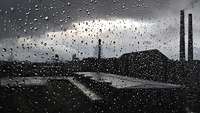According to the survey results, more than half of the companies (52 percent) expect their own business to deteriorate in the next twelve months. Only 8 percent still expect an improvement.
"This is the worst figure we have ever measured since the survey began in 1985," Wansleben reported. "Even in the times of Corona and the financial market crisis, the share of optimists was more than 10 percent."
For this reason, he said, DIHK has confirmed its very subdued economic expectations from spring: "This year we expect a plus of 1.2 percent in gross domestic product. This is due to the fact that we were able to carry over the momentum from last year and thus still had a good development in the first half of the year. In addition, many firms that were directly affected by the lockdown during the pandemic have been able to open their business again without restrictions for the first time this year. However, these growth impulses have been consumed by the energy price crisis, inflation and the gloomy global during the last months."
Wansleben warned, "The German economy is not only facing a hard winter, but also a difficult year. In 2023, based on the specific reports and assessments from companies, we expect a decline in economic output of 3 percent."
Record also for business risk energy and raw material prices
The energy crisis is a burden for German companies in almost all sectors. 82 percent of all businesses classify energy and raw material prices as a business risk. "Never before have we measured such a high risk level," said Wansleben. He said that industry in particular has been affected by the dramatic rise in energy prices and the uncertainty of energy supply.
"The effects can be felt in concrete terms: energy-intensive manufacturers of intermediate goods in particular are cutting back on their production. In the chemical industry, more than a quarterof companies is forced to cut back, in the rubber and plastics industry it is more than one in five." In the automotive industry 16 percent of companies are reducing their production. "That is one in six companies," Wansleben calculated. 17 percent of the automotive companies were planning to relocate production abroad because of the high energy prices.
According to the DIHK CEO, German economic policy must now urgently adapt its frame conditions to the new development: "Even if the current emergency measures such as the gas price brake come a little late: They are right and important," said Wansleben. "But now it is important that politicians also set the structural course for dynamic economic development. For Germany as a business location still has a massive competition problem beyond the acute crisis. We will only be successful in the world in the future if we act first and foremost as people who make it better – and not as people who know everything better."
Businesses must regain confidence
This principle also applies to the economic policy framework in Germany itself, Wansleben said. "Everything must be done to ensure that companies regain confidence and invest in the future here: For this we need more speed and more courage to tackle the right issues now. It is not only renewable energies that need to be expanded more quickly. We must also overcome standstill on the transport routes that are used for necessary transports and for people to keep their business appointments. Anyone who builds a new warehouse or retrofits something in their business should not have to fight for every step in the approval process. When it comes to digitalisation and cross-border trade, companies still experience so many obstacles. That's where we would like to see a liberating change."
Implement the moratorium on burdens
Wansleben reminded that the Federal Government itself had announced that they would stop creating additional burden at the end of September as part of the energy bailout plan. It had committed itself not to hamper the economy with disproportionate additional bureaucratic obstacles during the crisis. What exactly this should be no one from the Federal Government has yet specified, said Wansleben.
In practice, there are plenty of examples. For example, the electricity tax could be reduced to the European minimum level. This would not only lower the price of electricity, but also reduce bureaucracy, because energy-intensive companies would no longer have to apply for peak compensation. Furthermore, the supply of electricity by companies to neighbours in the commercial area could be simplified immediately by abolishing reporting obligations for the supplier through the introduction of a de minimis limit and by levying taxes, surcharges and grid fees on the buyer through simple flat rates. The Federal Government also wants to advocate a moratorium on charges in the European Union. Here, too, there was not yet a single concrete example of relief, although the DIHK had submitted a number of proposals, Wansleben said.
The complete survey results can be downloaded here:
"Economy in the wake of the energy price crisis" (PDF, 1 MB)


